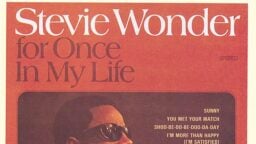A lawsuit against Donald Glover over alleged copyright infringement on his Childish Gambino track This is America has been dismissed.
Released in 2018, Glover’s This is America won Song and Record of the Year at the 2019 Grammy Awards.
The lawsuit was filed by Florida-based Emelike Nwosuocha (aka rapper Kidd Wes) in 2021, claiming that elements of his own song Made in America were copied by Glover to create his hit single, This is America.
Also named in the suit were Young Thug (Jefferey Lamar Williams), composer and producer Ludwig Emil Tomas Göransson, Kobalt Music, RCA Records, Sony Music Entertainment, Roc Nation Publishing, Warner Music Group and others.
On Friday (March 24), Judge Victor Marrero dismissed the case in a New York federal court.
Nwosuocha claimed in his complaint that there were allegedly “substantial similarities” between the two songs.
He argued in his filing, that “the substantial similarities between both songs include, but are not limited to, nearly-identical unique rhythmic, lyrical, and thematic compositional and performance content contained in the chorus – or hook’ – sections that are the centerpieces of both songs”.
The dismissal, which you can read in full here, notes that Nwosuocha (aka Kidd Wes) wrote his song Made in America in 2016 and uploaded the track to SoundCloud, and following that, uploaded a music video to YouTube.
Nwosuocha registered his “then-unpublished” album, Eleven: The Junior Senior Year (which features his song Made in America) with the United States Copyright Office on May 24, 2017, and was then issued a Sound Recording registration, the dismissal continues.
The document adds that the defendants (Glover et al.) argued that Kidd Wes’s claim should be dismissed because he “failed to register a copyright for his composition” meaning “he cannot assert a copyright claim that the composition has been infringed”.
The Court agreed that “Nwosuocha’s copyright claim fails as a matter of law” because he only owns a copyright registration for the sound recording and not for the composition.
The judge also said that, “even if Nwosuocha had a copyright registration for the composition”, dismissal still “would be warranted here because the elements of Plaintiff’s Composition purportedly infringed upon are insufficiently original to warrant protection, or because they are not substantially similar to the Challenged Composition”.
Adds Judge Victor Marrero: “The Court finds that the ‘distinct and unique vocal cadence, delivery, rhythm, timing, phrasing, meter and/or pattern’ or ‘flow’ as well as the ‘lyrical theme’ and ‘structure’ of the chorus in Plaintiff’s Composition lack sufficient originality alone, or as combined, to merit compositional copyright protection or are categorically ineligible for copyright protection.
Nwosuocha’s claim was dismissed, according to the filing, “with prejudice to leave to amend”
Glover’s attorney Jonathan D. Davis told Pitchfork in a statement that “We are very grateful for the court’s decision.
Davis added: “No case existed here, as there was no infringement—let alone a copyright registration. That was obvious from a simple comparison of the two songs and a review of the U.S. Copyright Office records.”
Music Business Worldwide





